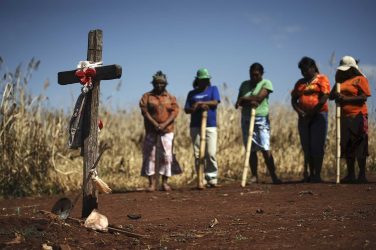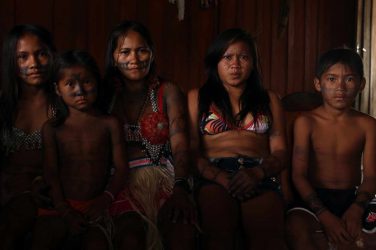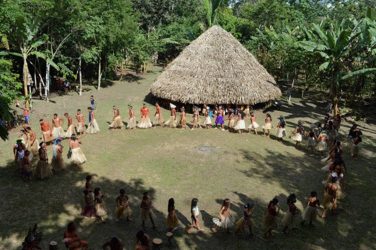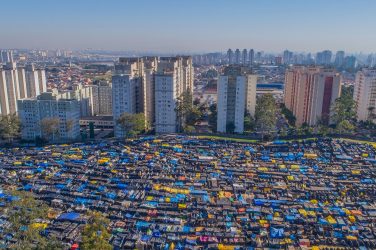A ten-year anniversary of the United Nation’s landmark recognition of indigenous rights finds slow progress in Brazil, which has the largest diversity of native people in the world, leaders and advocates said on Wednesday.
Tribal people struggle in the South American nation where many lack property rights and face violence from miners, ranchers and loggers eyeing their land, they say. Financial constraints hamper indigenous protection as well, they say.
Brazil is home to about 900,000 indigenous people, spread among some 300 tribes speaking nearly as many languages. It also has at least two dozen so-called uncontacted tribes.
More than 10 percent of its land mass is recognized territory for the indigenous population, and most of that land is located in the giant Amazon rainforest.
“We see our rights being violated all the time,” Brazilian indigenous leadership Alberto Terena told the Thomson Reuters Foundation.
Many tribes do not have rights to their land, said Terena, who is executive coordinator of the Articulation of the Indigenous Peoples of Brazil, known as Apib, an umbrella group of several advocacy groups.
Adopted on Sept. 13, 2007, the United Nations Declaration on the Rights of Indigenous Peoples (UNDRIP) was a sweeping, historic move to assess the situation of indigenous people and lay out standards for their survival and well-being.
The U.N. declaration helped give visibility to violations of indigenous rights in Brazil and boosted support for demarcation, which provides land rights, advocates say.
“We depend on the land to live,” said Terena. “With no demarcation, there is no health, no education. There is just a piece of land with heaps of people.”
The process of land demarcation to protect against property encroachment since the declaration has spawned violence, said Joana Chiavari, a senior analyst at Climate Policy Initiative in Brazil.
“Threats have been intensified since then, including proposals to change the demarcation process of indigenous lands, as well as to allow mining activities in these areas, in addition to budget cuts to institutions in charge of protecting indigenous peoples,” Chiavari said.
The number of killings of indigenous people in 25 nations doubled to 281 in 2016 compared with 2015, said Erika Yamada, a U.N. expert on indigenous rights.
“For 2017, the number is likely to be even more alarming,” Yamada said.
Brazil’s indigenous affairs agency, Funai, did not respond to a request for comment.
Indigenous tribes are increasingly facing threats from miners in the Amazon rainforest amid budget cuts to Funai, local officials and activists say.
Land incursions on indigenous territory have been increasing amid the budget cuts, part of austerity measures aimed at lifting Brazil out of its worst recession in decades, they say.
A federal prosecutor in Brazil’s Amazonas state recently launched an investigation into a reported massacre of at least 10 members of an uncontacted tribe by gold miners in a remote area along the Jandiatuba river, close to Peru’s border.
Funai officials in Amazonas said they received an audio clip with miners bragging about the crime.
This article was produced by the Thomson Reuters Foundation. Visit them at http://www.thisisplace.org














